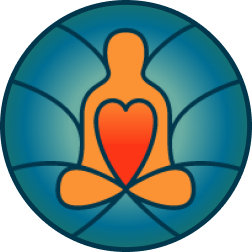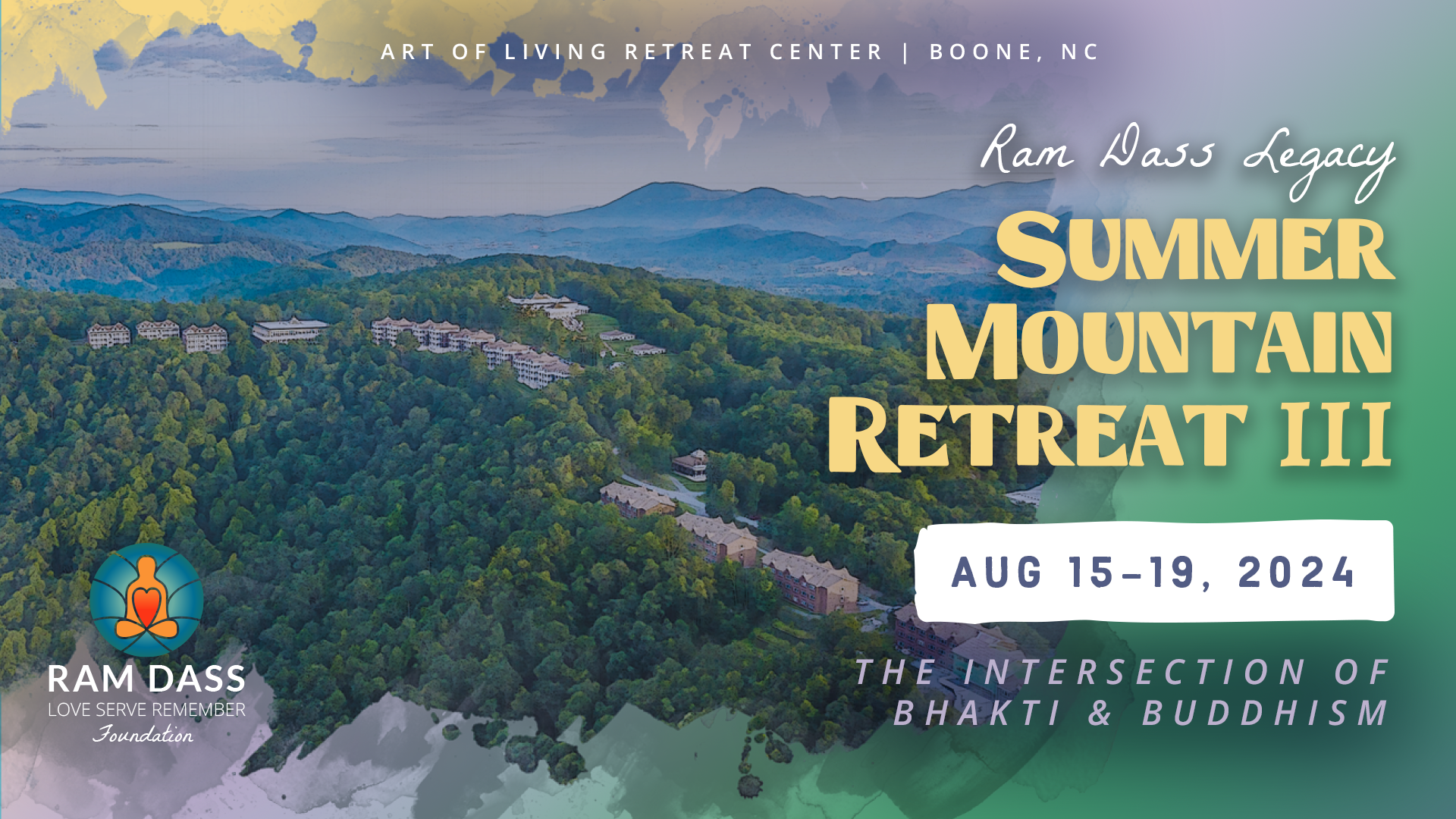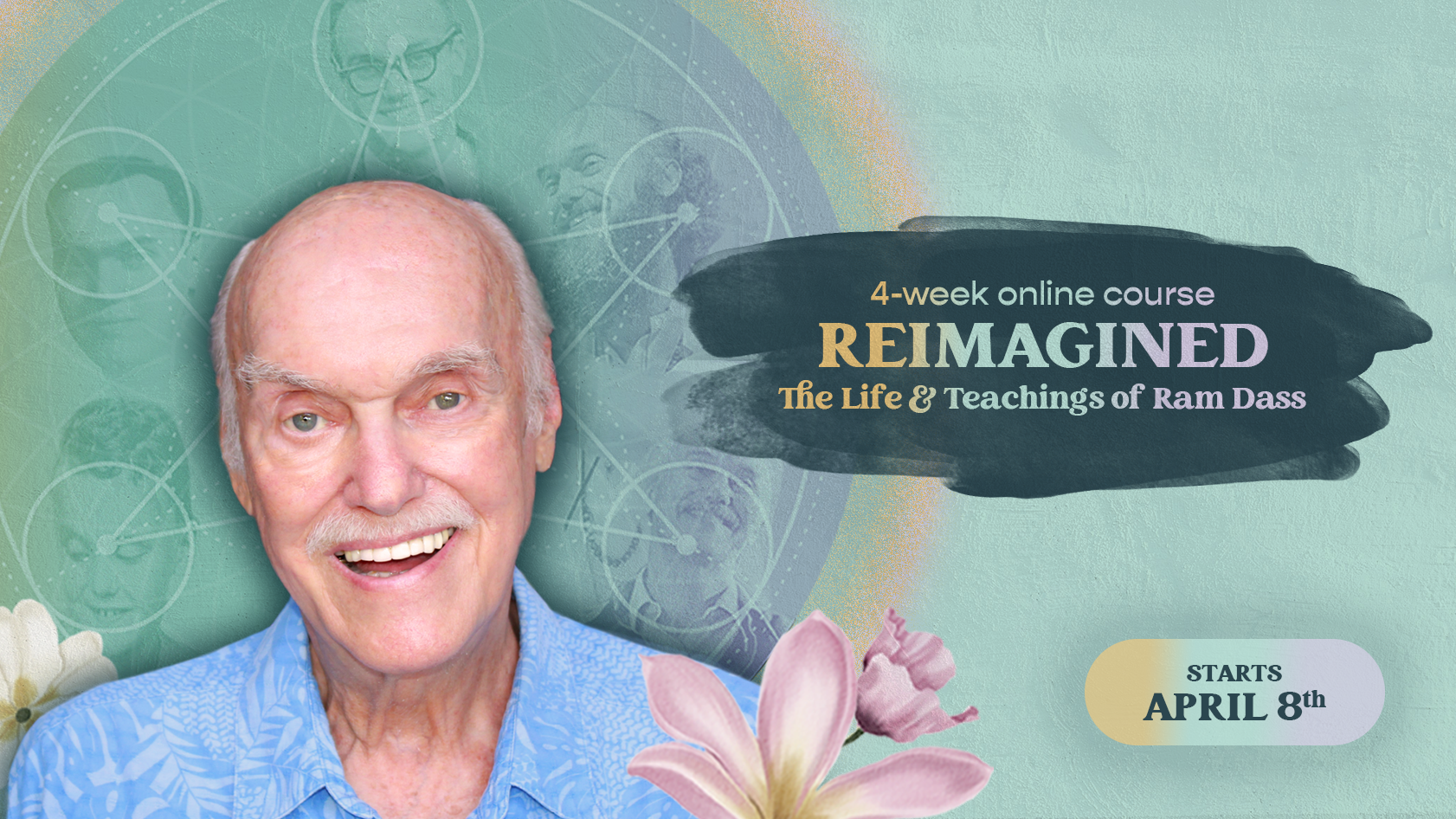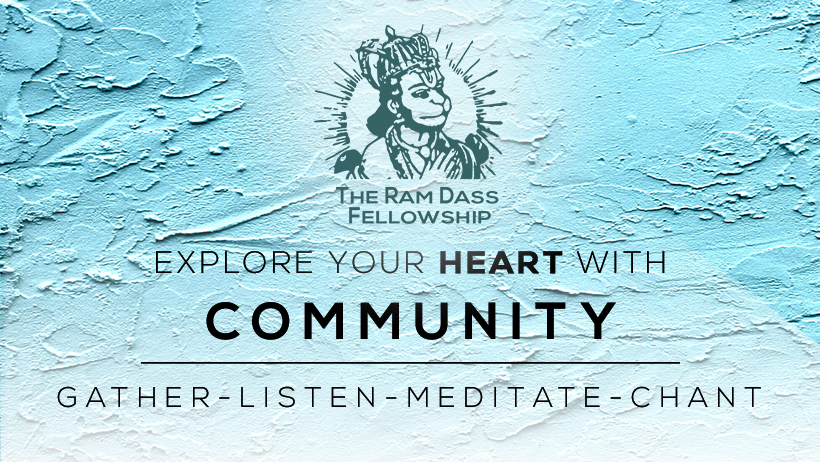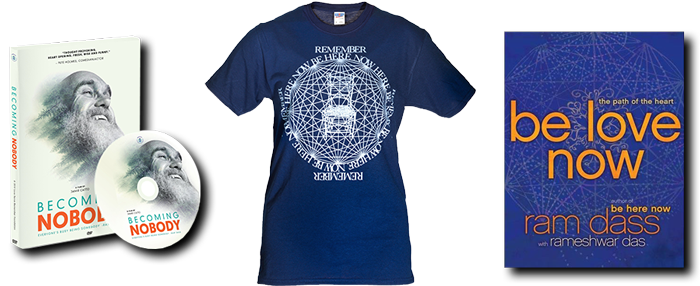We come together again under this circle to counsel with one another, and to find a quiet place inside yourself from which to hear - hear the fullness of the moment. We come together to understand. To understand reaching out, coming together, listening. Coming together to understand the place from which we can act. Where our acts heal.
We're coming together to share an exploration towards truth.
Ram Dass: A man in the USSR goes to the river to fish. He throws his cigarette in the water, and the river explodes. True story. The topic we're talking about tonight is one that I find perhaps the most difficult, because it's hard to know what to say or what to think or what to feel or what to do.
I don't know about you, but I would like very much to hide my head and make it all go away.
Tonight we're talking about ecology and the environment, and the imperative that the situation places upon us, and what we're doing about it. As a child, spending the summers in New Hampshire by a lake, I remember the feeling of the pristine quality of nature. I swam in the lake. I drank from streams. There were thousands of birds in the trees.
By the time I left that place in New Hampshire some 30 years, 35 years later, most of the birds weren't around anymore. You could swim in the lake, but there was garbage in it, so you didn't certainly want to swallow it. And you didn't drink from the rivers and streams anymore.
And I remember feeling a kind of sadness for something that had been lost. When I traveled a lot, and I used to have a private airplane, I'd come to Los Angeles and everything - the sky would be blue and the sky sun was bright and it was clear. And I would look down as I came in over the basin, and there was this thick, thick, yellow mustard-looking fog, smog.
And as I landed, I'd get burning sensations in my eyes. And then once I went to the mountains to be quiet for a week, and I remember I was in the flight path, apparently, of the airport. And every few minutes there was this raucous sound. And then I realized I flew an airplane, and I was one of those raucous sounds. So I stopped flying.
And then I, like you, have dealt with the garbage strewn on the beaches of New Jersey and New York, Long Island, with Three Mile Island, with Chernobyl. Do you know it's going to cost 386 billion dollars to clean up Chernobyl, let alone human life? You can't put a price on that. That's 14% of the gross national product of Russia.
And as I felt all these feelings in myself, and then when I pick up the newspaper and start to read the statistics, the rate at which trees were being cut down - in ten years, as much tree surface has been cleared as is the United States east of the Mississippi. And how much desert has been added. The amount of desert that's been added is equal to the arable land in China. And how much topsoil has been lost - one equal to the topsoil that India uses for all of its production.
And there has been an addition of 1.6 billion people in the last ten years, which is more than there were in the whole world of 1900. And there will only be 4/5 of the species by the year 2000 that there were in 1980.
I feel a little bit like I'm living in the middle of a science fiction story by Gibson or by Bill Burrows. It has a feeling of cold harshness, as if, is that what we humans beings do to it all? Going into inner cities like Detroit or parts of New York and just seeing building after building, boarded up, deserted, thrown away, thrown away.
Behind it all is the tyranny of a set of ideas, core ideas which we built our reality on. Ideas of anthropocentrism, like we’re the center of it all, after all. Ideas that we as individuals should get what we want at any expense, that our satisfaction should come in acquisition and in ownership.
A meditator friend of mine, Christopher Titmuss, just sent me his new book, and I opened the introduction and it said, “Several years after giving a public talk on engaged spirituality in Madrid, I spoke with a successful and unhappy businessman resident. He had a yacht, a holiday villa on the Mediterranean island, was the owner of several factories and perhaps the largest car in the capital. He told me: ‘The purpose of society is to produce and consume. All human activities are subservient to this core idea. There is money to be made in every human activity - fashion, the latest gadgets, the newest style, and subtle refinements of technology ensure the continuity of this momentum.’”
[Ram Dass welcomes Carl Anthony, president of the board of the directors of the Earth Island Institute.]
Ram Dass: Carl, you heard my confusion and my pain as a human being. And I'm sure I speak as part of all of us.
What do you want to tell us at this point? You must be thinking about these issues probably most of the time you're awake, and we ask your counsel now…
Carl Anthony: I share very deeply the stories that you told, the images that you brought forth. And I feel myself, with everyone here in the audience, to be on a journey. And as I listened to the images on the screen, I most identified with that fish that found herself in a pool of mud on the beach and therefore needing to undergo some kind of change to get to the other pool that was quite some distance away.
I'm really very pleased to be associated with Earth Island Institute and with David Brower and with all of you and with the people who are here. I have come to the struggle as a person of color. I don't have the privilege of being an indigenous person, because many of my ancestors were brought from the continent of Africa, not by choice.
But I also have other ancestors who came here from Europe by choice. And I also have other ancestors who were the indigenous people here. And so for me, what is especially challenging and especially wonderful is to listen to these different voices in myself. And I think that in a way we all have those voices.
We all were indigenous to someplace.
In California, many Native Americans in California are really immigrants to California. They are indigenous people in the United States, but they've come to Oakland because of the uranium tailings on the Navajo reservation, or because there's too much candy being sold or too much alcohol being sold with no opportunity for them on the reservations where they are. I don't really know whether it's true, but I suspect that some of my ancestors were on the Trail of Tears that went from Georgia to Oklahoma.
So what I see is really immensely a source of potential enlightenment. And I don't know whether the catastrophe that you described is really the catastrophe of one fish finding itself in a puddle, and so we each need to make this discovery one by one in the middle of the night, or whether it's a big bang and the whole thing goes up.
But as a person of color whose ancestors for 12, 14 generations have been taught to believe that people from Europe really know the answer, it's refreshing to find out that we actually have some responsibility here. And the responsibility that we have is to assume, let's say, a shared effort in guiding us to where we have to go.
And I think as an African American, this is something that is sort of, we're not comfortable with that quite yet because we are used to the idea that - you guys figure out what the answers are, and then when you get it figured out, let's see, we represent 12% of the population…. So we want 12 positions. And whatever the answer is. [laughter]
So I think what we have to all do is we have to try on different hats, and I think that some of us as African Americans need to try on some visionary hats and see if we can maybe come up with some images. And many people are ready. Maybe we can come up with some images and we need to do this, I think, with humility, because we know that that we may be wrong or that what we put forward may not work.
But at the same time, one of the wonderful things about ecological diversity is that it's beginning to teach us the importance of human diversity.
And therefore there are secrets that are known by those people who have not been in the council, and we need to discover those secrets and we need to see what they have to teach us.
As an African American whose ancestors came from the American South, it has disturbed me, but it also has encouraged me that we look at the problems of environment and ecology, that we have a whole history and whole region of the country which has been totally invisible to the environmental movement. And that background and that history, I mean, after all, the American South was the first underdeveloped country is an important resource for us.
So I would say that I am really happy to be here to learn with everyone. And I think as an African-American again, I do believe that the principal position of the indigenous people is really perhaps the most important thing. That we all need to find ourselves in a position of following those who have been truest to the land for the longest period of time, where they are.
And to me, if as an African American, coming from an urban tradition, we can position ourselves as people who are capable of learning from indigenous people, that maybe we can all make the transformation that we need to make in the generation ahead.
Ram Dass: Carl, talk a moment about the relation between urban ecology and things like rainforests. How do I conceive of the link, and how do you put your use into urban rehab and tell me about that?
Carl Anthony: Well, The urban environment is the place where the most dense collection of human beings is. So when we talk about forest as a community of plants and animals of which may be, some people say the dominant species are trees, one could argue that the city is a place where the dominant species as human beings. I doubt if that's true - there are probably more rats and roaches. But it is a place where we are together, and it seems to me that if you care about the rainforest, if we really want to do something about those regions in which human beings are maybe not so present, that we should go about healing those places where we are present.
And I look at Oakland, I see really wonderful opportunities for healing. We have opportunities for healing between people of diverse cultures. We can also bring wilderness back into the city. We can open up the creeks, we can stop eating up the farmland around the place, around Oakland. We can stop building suburbs. In fact, we could and we could put a national moratorium on paving. I think that would be a wonderful thing to do.
So I think we have wonderful opportunities. I listened to Winona LaDuke about three weeks ago, a Chippewa leader, an indigenous woman, and she said, ‘Well, you know, people talk about Indigenous people as if they are passé or as if their culture is gone. When we talk about sustainable living, we're already doing this.’
The indigenous people in this country are already doing this, and the same in many ways can be said for poor people. If you live in the suburbs, you consume 200 gallons of water every day. If you live in the city, maybe 40 gallons, if you're homeless, maybe five gallons or two gallons. So we have something that we could learn from those people who are poor because they're not the ones that are creating the problem with the ozone layer. They're not the ones that are creating the problem with the rainforest. And so maybe if we really learn to treat people who are struggling with minimal resources with dignity, we might be able to find a path toward living on less resources ourselves.
Ram Dass: Boy, you're bringing together so many threads in this course, that we all can feel in our hearts.
How do you say to somebody that says, "What do I do?" What do you tell them? I mean, what I say to people is, get all the information and then listen to your own heart as to what you do. I don't know what else to say, where are we? I mean, is it too late? Should we do something? What is the feeling there?
Carl Anthony: Something that came to my mind, which may not be relevant, but this is statement from the Bible that says, "Physician, heal thyself." And I would say that we really do need to find the harmony within ourselves in our being. Because if we operate from a place of lack of personal balance, then there's no way that we can possibly bring harmony into our surroundings.
And this is very difficult. And I certainly feel that it's a worthy journey. In my way of thinking, there really needs to be a balance between finding that peace within oneself and then acting on the external world to see, to test what we've found. So I'm not so sure exactly that it's about going around collecting aluminum cans and putting them in in bins. That's certainly part of it. And for people who are at that place, I'm not so sure that it's exactly about buying the right type of toilet paper. But I do believe that each one of those little steps is a step perhaps toward a different kind of consciousness. And I think we each really know where we are.
Each of us knows where we are. And if we take the time to listen to those quiet voices that tell us, rather than the big advertising signs, I think we may be able to be on the journey.
Continue Watching the Full Video Here (recorded in the 1980's)

